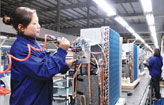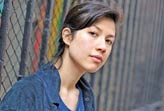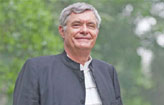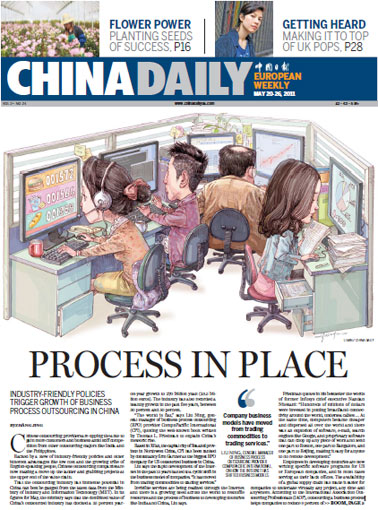Society
Study: Homosexuality, celibacy didn't cause abuse
Updated: 2011-05-20 10:53
(Agencies)
WASHINGTON - Researchers commissioned by Roman Catholic bishops in the US to analyze the pattern of clergy sex abuse have concluded that homosexuality, celibacy and an all-male priesthood did not cause the scandal.
The study by the John Jay College of Criminal Justice in New York instead said that the problem was largely the result of poor seminary training and insufficient emotional support for men ordained in the 1940s and 1950s, who were not able to withstand the social upheaval they confronted as pastors in the 1960s. Crime and other deviant behavior increased overall in the United States during this period, when the rate of abuse by priests was climbing.
"The rise in abuse cases in the 1960s and 1970s was influenced by social factors in society generally," the report's authors said. "Factors that were invariant during the time period addressed, such as celibacy, were not responsible for the increase or decline in abuse cases over this time."
Victims' groups dismissed the report as an attempt to focus blame for the scandal on priests, instead of on bishops who allowed offenders to stay in ministry without warning parents or police. "They want us to fixate on abusive priests, not callous bishops," the Survivors Network of those Abused by Priests said in a statement.
The report, set to be released Wednesday, is the third study commissioned by the US Conference of Catholic Bishops in 2002, when the abuse crisis erupted in the Archdiocese of Boston and caused what church leaders have called the deepest crisis in American Catholicism. A person close to the bishops provided an early copy to The Associated Press on condition of anonymity since the person was not authorized to release the information.
The scandal has cost US dioceses nearly $3 billion and has spread to Europe and beyond. Just this week, Vatican officials instructed bishops worldwide to develop discipline policies for abusive priests within a year.
The debate over why priest-abusers were kept in ministry in the US often fell along ideological lines. Liberals blamed mandatory celibacy or the lack of women in the church hierarchy, while conservatives blamed gay priests, since the overwhelming majority of known victims were boys.
The John Jay researchers, however, said that the offenders chose to victimize boys mainly because clergy had greater access to them. The study notes that gay men began enrolling in seminaries in larger numbers in the late 1970s and early 1980s, at a time when the rate of abuse was declining.
The authors, in findings first reported by Religion News Service, said they found "no single cause" of child sex abuse by priests and no "psychological characteristics" or "developmental histories" that distinguished guilty priests from clergy who did not molest children.
Although the victims studied by the researchers were all minors, the authors said only a tiny percentage of accused priests _ less than 5 percent _ could be technically defined as pedophiles. The John Jay researchers define pedophile as an adult with an intense sexual attraction to prepubescent children. However, victim advocates have disputed that classification by age, since boys ages 11 to 14 were the largest group of known victims, which could include children who had not yet gone through adolescence. The American Psychiatric Association defines pedophilia as attraction to children, usually age 13 or younger.
According to previous studies conducted by John Jay and other surveys commissioned by the bishops, US dioceses have received abuse claims from more than 15,700 people against about 6,000 clerics since 1950. Abuse cases peaked in the 1970s, then began declining sharply in 1985, as the bishops and society general gained awareness about molestation and its impact on children, the study said.
Dioceses reported that nearly all of the allegations they received were reported after 2002 in response to intense news coverage of the problem and after child victims gained courage as adults to come forward. John Jay researchers said this means that the bishops were not aware of the true scope of the problem until then, an assertion victims' groups say is naive.
Critics argue the study cannot be trusted since the raw data was provided by the bishops.
In February, a Philadelphia grand jury alleged that the local archdiocese kept 37 credibly accused clergy in public ministry, despite repeated pledges by the nation's bishops that no offenders would stay on duty. In response, Philadelphia Cardinal Justin Rigali suspended about two dozen clergy and hired a former prosecutor to review the cases. Ana Maria Catanzaro, the head of the Philadelphia review board, which was formed to advise bishops on abuse cases, said last week that the archdiocese had "failed miserably at being open and transparent" and had kept some cases from the board.
"What Philadelphia does is reveal the flaws in the process," said Ann Barrett Doyle of the advocacy group BishopAccountability.org, which is compiling a public database of all records related to the scandal.
Sister Mary Ann Walsh, a spokeswoman for the bishops' conference, said church leaders fully cooperated with the $1.8 million study, which was funded by the bishops, Catholic foundations, individual donors and a grant from the US Department of Justice. Dioceses have spent tens of millions of dollars since 2002 on child safety programs that include background checks for people who work with children and training for adults and children to identify abuse.
"John Jay was chosen to do the study because of its independence from the church," Walsh said. "John Jay was free to consult whomever they wanted and they did so."
E-paper

Thawing out
After a deep freeze in sales during the recession, China’s air conditioner makers are bouncing back
Cool Iron lady
Of good and evil
Build on security initiatives
Specials

Memory lanes
Shanghai’s historic ALLEYS not just unique architecture but a way of life

Great expectations
Hong Kong-born singer songwriter rises to the top of the UK pops.

A diplomat of character
Belgian envoy draws on personal fascination to help build China ties.
